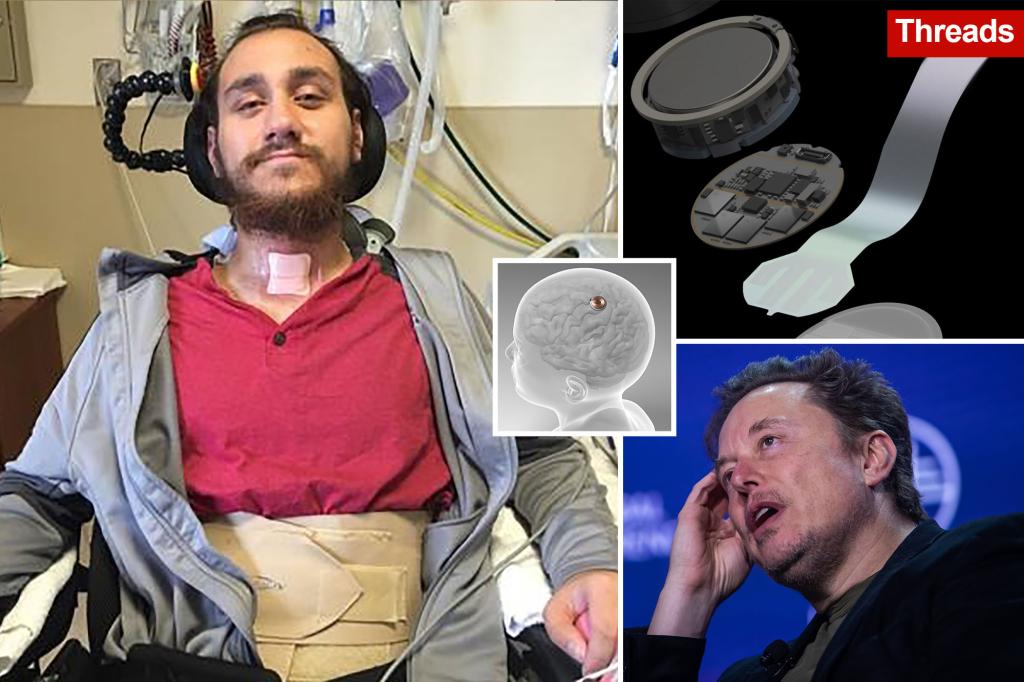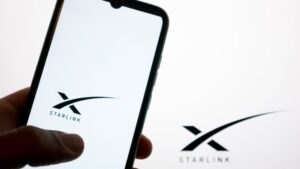Elon Musk’s brain chip startup said Wednesday that its first implant has failed.
Neuralink’s brain-computer interface, known as BCI, was implanted in the brain of 29-year-old patient Nolan Arbaugh in January.
Designed to help paralyzed patients control external technology using only their minds, Arbaugh — who is paralyzed from the shoulders down due to a diving accident eight years ago — is participating in Neuralink’s six-year trial to test the chip’s safety.
Just last month, Neuralink live streamed a nine-minute video of Arbaugh showing how BCI technology works.
He was seen playing video games and explained that he just imagines the cursor moving where he wants it to go and it does.
Neuralink’s chip contains 1,024 electrodes in 64 “threads” — which are thinner than a strand of human hair — that are programmed to collect data about the brain’s neural activity and movement intention and send that data to the company’s computer for decoding, to to transform thoughts into action.
However, in the weeks since the startling video, “a number of threads have withdrawn from [Arbaugh’s] the brain, resulting in a net reduction in the number of effective electrodes,” Neuralink said in a blog post earlier Wednesday, which was reported by The Wall Street Journal.
As a result, Neuralink was unable to measure how effective the electrode and thread system was.
It was not clear how many threads were faulty.
“In response to this change, we modified the recording algorithm to be more sensitive to neural population signals, improved the techniques for converting these signals into cursor movements, and improved the user interface,” Neuralink added, insisting the refinement will improve accuracy of Arbaugh’s ability to control the bits per second (BPS) of the cursor.
BPS, according to the company, is “the standard measure of speed and accuracy.”
“These refinements have led to a rapid and sustained improvement in BPS that has already superseded Noland’s initial performance,” Neuralink said.
The company, which recently moved its base from Delaware to Nevada following Musk’s dispute with a Delaware judge who voided his $56 billion stake in Tesla, is considering removing the implant, but the issue does not pose a direct risk to Arbaugh’s safety, The Gazette reports .
However, the option of removing Arbaugh’s implant, a so-called “explantation,” has been suggested, people familiar with the matter told The Journal.
Neuralink did not immediately respond to The Post’s request for comment.
He was the first person to be tested on the chip, developed by the Musk-owned company, when a robotic surgeon plugged the implant into his brain. It was not clear how many others would be involved in the trial or where they would be held.
Despite the scandal, Arbaugh uses Neuralink’s BCI system for about eight hours a day on weekdays and up to 10 hours on weekends.
“Now I can literally just lie in bed and play to my heart’s content,” he said on the live stream in March — or at least until his rechargeable chip’s battery dies.
Neuralink, founded in 2016, has mostly kept information about its technology and human trials secret – prompting calls for greater transparency.
The U.S. Food and Drug Administration approved human trials of the brain chip last year after the company conducted hundreds of tests on animals — and faced backlash from animal rights groups in the process.
For his part, Arbaugh said he signed up to try the implant because he “wanted to be a part of something that I feel is going to change the world.”



